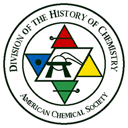THE POSTHUMOUS NOBEL PRIZE IN CHEMISTRY
CORRECTING THE OVERSIGHTS AND ERRORS
OF THE NOBEL PRIZE COMMITTEE
This is the title of a symposium planned for HIST for the Spring, 2016 ACS National Meeting to be held in San Diego, CA, March 13-17. Surely all of us have sometimes been puzzled and annoyed about the Nobel Prizes in Chemistry. How did Chemist A receive a Nobel Prize when Chemist B did not? How is it that Chemists X and Y shared a prize, when Chemist Z, who did equally important work on the same topic, was overlooked? Shouldn't Raymond Damadian have shared the Nobel Prize for nmr imaging given to Paul Lauterbur and Peter Mansfield? Now you will have an opportunity in a presentation to make the case for some unjustly overlooked chemist.
The word "posthumous" is not intended to be a straightjacket. If that overlooked person is still alive, perhaps making the case for that individual will cause that past wrong to be righted. The presentations clearly have to be about a person who lived past 1901, the year of the first Nobel Prizes. The talks do have to be about chemistry. Leo Tolstoy lived until 1910, and perhaps he should have received the Nobel Prize for Literature; but that case needs to be made in another venue. However, very often the Nobel Prize for Physiology and Medicine involves chemistry as does physics occasionally. Consequently, scientists who have done chemical research that overlaps into physiology, biology, medicine, and physics and has been unjustly overlooked are fair game.
As organizer, I do intend to act as a gate keeper. Otherwise we would have four talks about how G. N. Lewis should have won the Nobel Prize in Chemistry (and I agree that he should have). Therefore, I would like the topic of your proposed talk run by me first, before you submit an abstract next Fall. Certain chemists are already taken, so don't submit any of the following names: Wallace Carothers, Herman Mark, Neil Bartlett, G. N. Lewis, and R. B. Woodward. (Yes, I know that Woodward won a Nobel Prize, but perhaps he should have won two.) This still leaves lots of scientists available, such as Henry Moseley, Rosalind Franklin, and Lise Meitner, to name just a few. Please send your topic to me, Tom Strom, at (tomstrom@juno.com) between now and October; but the earlier the better. I am hoping for a large number of submissions to highlight these past omissions. Remember, not only in wars but in science as well, history is written by the victors. Let's do our best to expand that history.
E. Thomas (Tom) Strom, Email: tomstrom@juno.com

